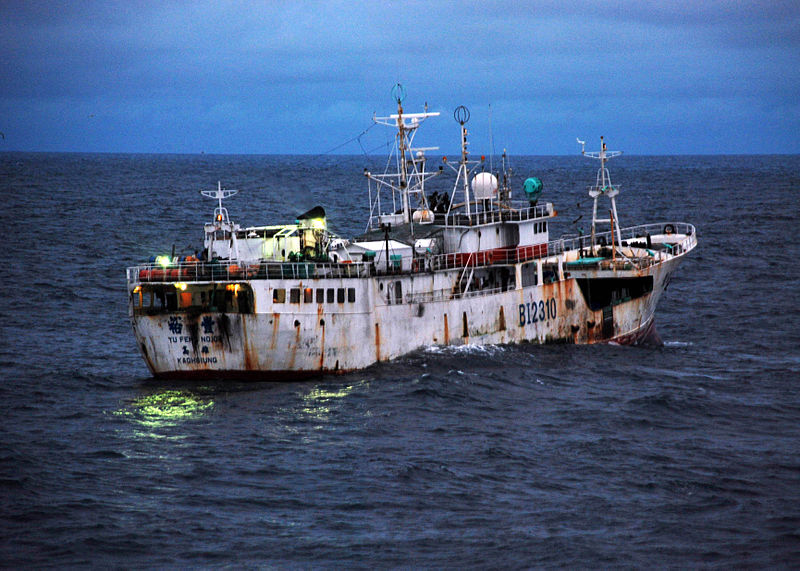More than eight million to 14 million tonnes of unreported fish catches are traded illicitly every year, costing the legitimate market between $9 billion and $17 billion in trade each year, according to new research.
In a paper published in Science Advances, researchers from the Fisheries Economics Research Unit and the Sea Around Us initiative, both based at UBC’s Institute for the Oceans and Fisheries, as well as the Sea Around Us – Indian Ocean at the University of Western Australia, looked at catch losses for 143 countries and found that significant amounts of seafood are being illicitly taken out of the food supply system of many countries, impacting the nutritional food security and livelihoods of millions.
“The overall economic impact related to the diversion of fish from the legitimate trade system is estimated in $26 billion to $50 billion globally,” said Rashid Sumaila, lead author and professor in the Institute for the Oceans and Fisheries and the School of Public Policy and Global Affairs. “Further, the substantial economic effects of the illicit trade in marine fish catch is affecting countries in Asia, Africa and South America who can hardly afford this loss. Those three geographic regions combined account for around 85 per cent of total catch losses to illicit trade globally.”
“Many species of fish are targeted by industrial fishing fleets including illegal, unreported and unregulated vessels,” said co-author Daniel Pauly, professor and the Sea Around Us principal investigator. “Illicit trade in fish and seafood products contributes to the depletion of a region’s fish stocks. The Sea Around Us research has shown that fish catches are already vastly underreported, and if the catches that enter illicit trade are not also accounted for, we are moving closer and closer to wholesale depletion of this resource.”
The potential loss to the legitimate trade system of global marine fisheries catches due to likely diversion into the illicit trade network is equivalent to losing 12 million to 22 million mature cows in weight annually.

Taiwanese-flagged fishing vessel suspected of illegal fishing activity. Photo by Shawn Eggert – U.S. Coast Guard, Wikimedia Commons.
“Not only is this a huge amount of animal protein that may be traded illicitly, but such catches are also often processed aboard large foreign industrial transhipment vessels, and directly shipped overseas without unloading and processing in host countries, thereby depriving local economies of revenue, income, jobs, and economic impacts,” Sumaila said.
Increased transparency, including whole-of-industry supply chain accountability, is urgently needed. Ratifying and enforcing of various existing international agreements, addressing fish ‘laundering’ via transhipment operations, granting fishing access permission only to vessels that are insured by marine insurance companies with the ability to exclude blacklisted vessels through transparent due diligence, and stepping up collaborative enforcement activities across all on-the-water activities between countries are some of the solutions that the researchers propose.
“Only through full accountability and public transparency can we ensure that fish resources are not only sustainably and legally caught and traded, but that the benefits of this economic activity accrue to the people and governments of each country where fisheries occur,” said Dirk Zeller, director of the Sea Around Us – Indian Ocean at the University of Western Australia and co-author of the study.
“Illicit trade in marine fish catch and ecosystems and people worldwide,” was published in Science Advances, doi: 10.1126/sciadv.aaz3801


